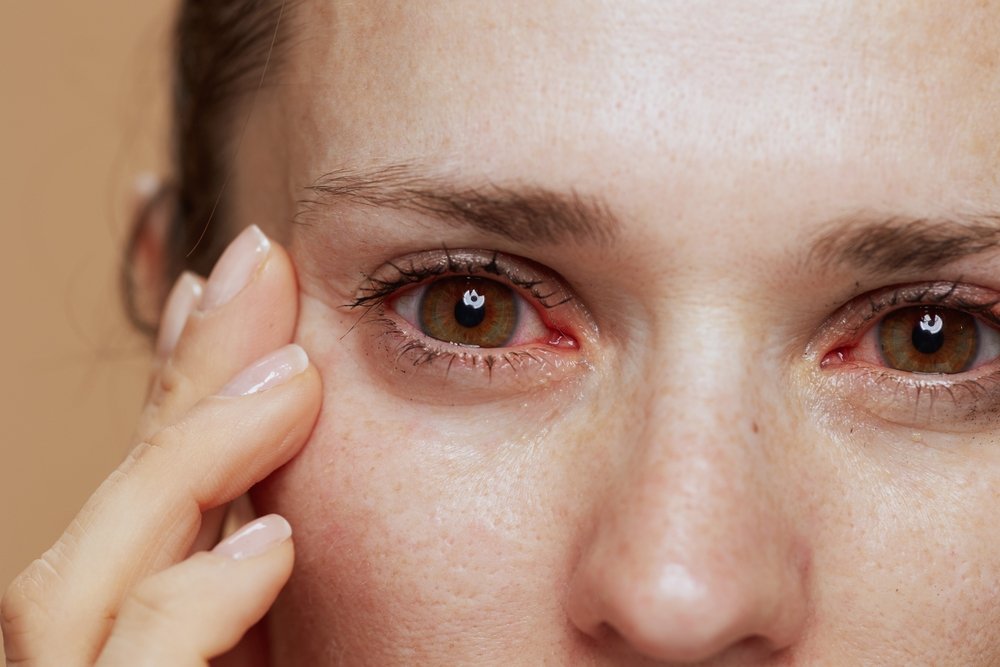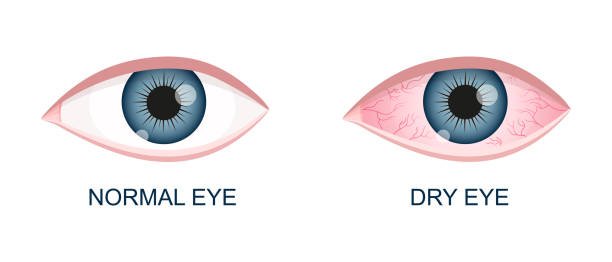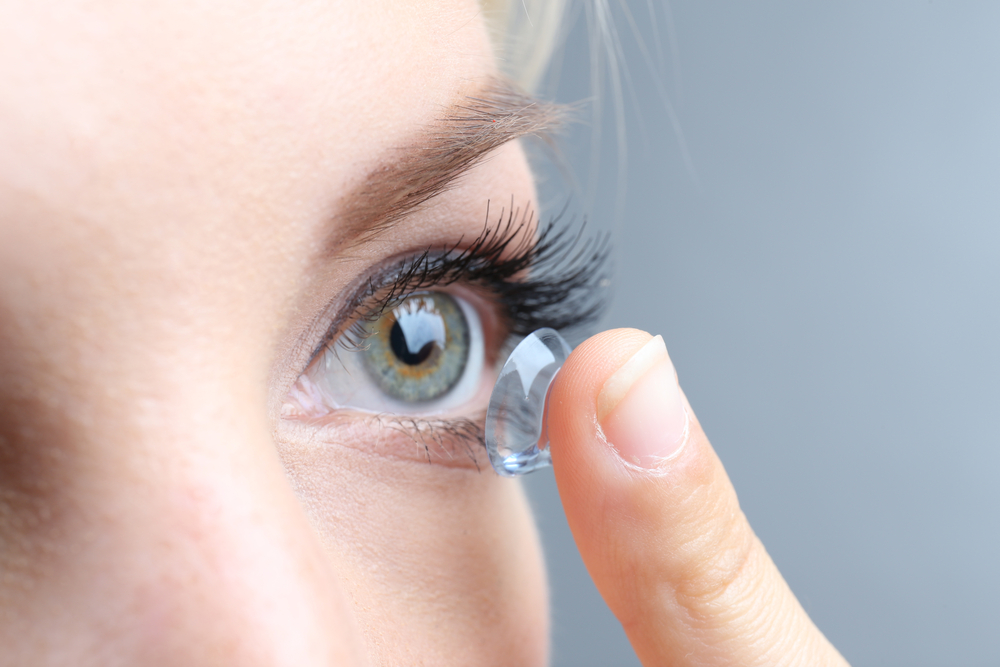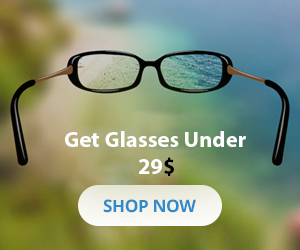Eye dryness can be a real nuisance and discomfort. It leads to sealing and fuming, and even blurring of vision among individuals. Dry eyes occur either due to the development of insufficient tears or due to the excessive evaporation of the tear. This makes it feel dry and sore around your eyes. It can be relatively tame to utterly drastic. In extreme cases, the disease must significantly impair an individual’s quality of life. Luckily, there is a variety of remedies and treatments applicable to alleviate the signs. Understanding what causes dry eyes and selecting the most effective treatment option will help you deal with it.
What Is Dry Eyes?

Dry eyes is a disease that might develop due to various causes. The main reason is the hypersecretion of tears. At times, the tear glands may not create enough lubricant to adequately moisten the eyes. The causes are primarily degenerative, medication-induced, or connected to changes in overall health. An important cause of dry eyes is the rapid evaporation of tears.
It could be due to wind exposure, cold air conditioning, and smoking. Furthermore, antihistamines or some antidepressants can induce it. Blepharitis, conjunctivitis, and Sjögren’s disease are all potential contributors. Apart from this, extended screen-gazing causes dry eyes in some people as well. It slows the blink rate and lets moisture drain, thereby drying the users’ eyes.
Dry Eyes Symptoms

Dry eye symptoms can be almost negligible or may be very severe. The most frequent sign of this condition is eye discomfort, a sensation that there is sand in the patient’s eyes. At times it might also create the impression as if both your eyes are literally burning or stinging. Many people have a hazy vision, particularly after extended periods of reading or working on a computer.
Others complain of photosensitivity and eye redness. In some situations, the body may produce excessive tears to compensate for a lack of moisture. This is contradictory but a response to irritation. With dry eyes, it can prove challenging to wear contact lenses. Severe dry eyes may lead to frequent eye infections or even corneal damage.
Can Dry Eyes Cause Blindness?
In a few cases, severe dry eyes may cause vision problems, but it is almost impossible to cause blindness. Untreated dry eyes may lead to corneal surface damage that leads to infections or ulcers. This condition can lead to vision problems if it worsens. Long-term dry eyes may lead to the development of other serious conditions.
The dryness of the eyes interferes with the healing of the eyes. Chances of damage and infection to the eyes are very high since their healing is interfered with. It will not cause blindness. However, it is a medical disease that must be treated to avoid further complications and loss of eye health.
Best Eye Drops For Dry Eyes
Though a permanent cure may not be possible, good therapy and management can surely alleviate the problem. So, the first step is to determine which medical condition is causing the difficulty. The treatment for that sickness may alleviate symptoms.
Therefore, it may help those patients suffering from autoimmune problems or hormonal imbalances. If the cause is environmental, employing a humidifier or protective eyewear on windy days may help. Artificial tears or lubricating treatment can be applied routinely to dramatically alleviate the condition.
Moreover, it is utilized to treat moderate to severe dryness that calls for the use of punctal plugs. Punctal plugs work by putting tiny plugs into tear ducts to stop drainage. The eyes remain moist. At times, the doctor may give topical NSAIDs, which are nonsteroidal anti-inflammatory drugs used to treat inflammation.
Best Eye Drops For Dry Eyes?
Artificial tears in the form of eye drops are currently the preferred remedy for the Condition. They work immediately in removing irritation while at the same time moisturizing the eyes. You should be aware that the best eye drops for dry eyes depend on how bad the condition is.
In the case of mild problems, over-the-counter, lubricating drops are utilized. It is available in a variety of formulas, and it can even be preservative-free. Your physician may recommend a prescription eye drop if you have severe dry eyes.
Ocupress is one of several prescription eye drops that reduce inflammation and promote tear production, along with Restasis and Xiidra. Other drops include a combination of oils that lower evaporation. For people who have a persistent disease that causes extremely dry eyes. Corticosteroid eye drops may be advised for short-term use to decrease irritation.
Best Contacts for Dry Eyes

It might be difficult to determine which contact lenses are best for someone with dry eyes. Some lenses can exacerbate conditions like dry eye syndrome, while others are intended to provide even more moisture and comfort. Hypromellose is the material used most often in soft contact lenses and is preferred for patients with dry eyes.
As a result, oxygen even gets to the cornea hence minimizing eye irritation. Some of them, such as Acuvue Oasys and Air Optix Aqua, use increased moisture technology. If you are uncomfortable wearing contacts, daily disposables are definitely a better option.
They guarantee that a new pair is worn each day. This eliminates the risk of buildup and dryness. RGP lenses are available, though not as common for people with dry eyes. However, they may be a good fit for some people who have unique vision problems. Always consult your eye care practitioner for the best option.
Wrap-Up
Severe dry eyes can affect your life considerably. They can be painful, blur vision, and even give rise to complications if left without treatment. The causes of dry eyes are diverse, cutting across age, medical conditions, medications, and environmental factors. These include burning, irritation, and excessive tearing. Even though dry eyes are unlikely to cause blindness, they can cause significant damage to the eye’s surface.
There is no one-time permanent cure, but rather many effective treatments that include eye drops, medications, and lifestyle changes. However, there are situations when using the right eye drop or contact lens can perform miracles. Following severe instances of dry eyes, you should consult an eye care specialist to identify the best course of action.



